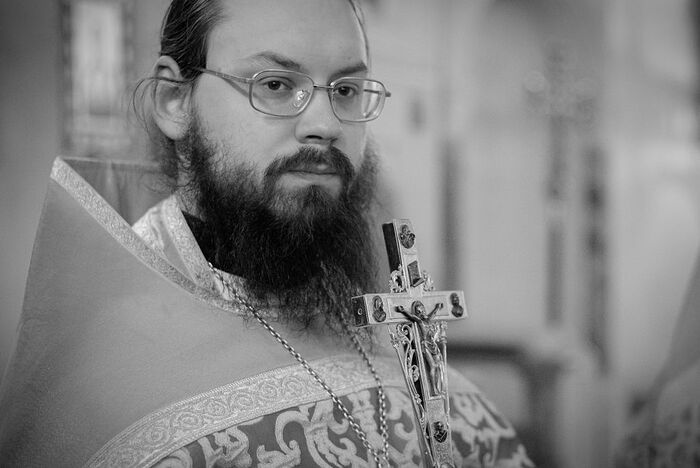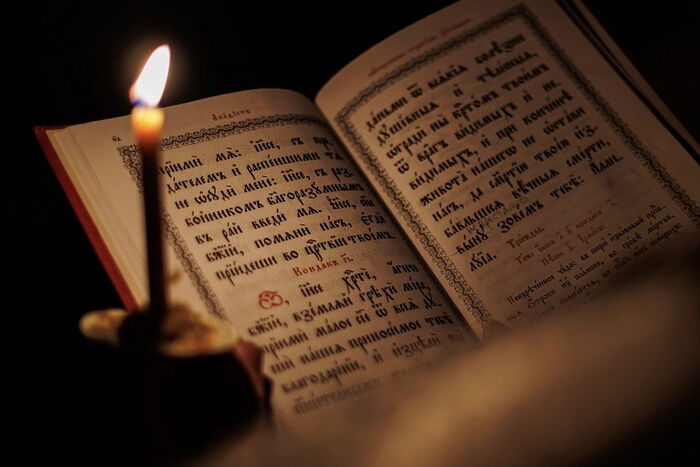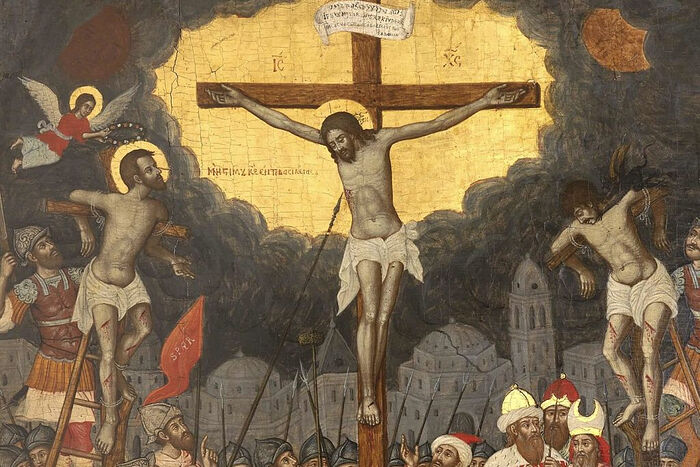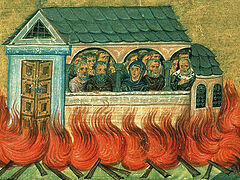In the name of the Father, and of the Son, and of the Holy Spirit!
Four times during Lent we celebrate this service called Passion Service with the akathist to the Holy Passion of Christ. Each time we read a passage about the Passion of Christ by one of the four evangelists, and each of the evangelists complements the others in some way, telling some details related to the Passion of Christ that the other apostles do not describe.
Today we have heard the Gospel of Luke, and perhaps the most striking episode related to the Passion of Christ, which this Gospel has and the others do not have, is the passage about the Wise Thief. We all know this story perfectly well and constantly recall it at church services, and at every Liturgy we hear the words, “In Thy Kingdom remember us, O Lord, when Thou comest into Thy Kingdom.” This is a paraphrase of the thief’s last words to the Savior. This story teaches us the mercy of God and the power of repentance.
But there is another important lesson that the Wise Thief can teach us who go to church and try to lead a Christian life. The Venerable John Climacus in his Ladder of Divine Ascent writes about this lesson: “Think about it, and do not judge the offender: Judas was in the company of Christ’s disciples, and the Robber was in the company of murderers. And what a reversal when the crisis came1!” And indeed, during the life of this thief, when people heard about his atrocities or, God forbid, encountered him, they certainly thought: “He is doomed—there is nothing sacred for him.” At the same time the Pharisees, fulfilling the Law of God zealously, received a completely different judgment: “What righteous people they are!” In the end, everything turned out the other way around. This thief entered Paradise, while the Pharisees crucified God incarnate.
We must keep this in mind, because when we meet someone who commits some sins, we very often want to pass judgment on him, humiliating him and giving him up for lost. But we do not know what he is like in the eyes of God, how he will appear before the Lord and how we will appear before Him. Such episodes happen all the time, and certainly many of us know how people turn from robbers into faithful servants of God.
There was a similar episode during the persecution of the Church under the Bolsheviks. There was a clergyman who first defected to the Renovationists and did a lot of harm to the Russian Orthodox Church, becoming a secret agent of the Soviet special services. He had many clergymen imprisoned and renounced his own faith, then traveled all over the country with anti-religious lectures. The faithful viewed this man in much the same way as they saw the thief. Eventually he found himself in Leningrad during the blockade (in WW2) and just before his death he came to church, confessed all his sins out loud in front of everyone, took Communion and, leaving the church, said: “I believed, I believe, and I will believe.” He departed this life as a Christian. Such stories happen all the time in life.
This call is a lesson from the Wise Thief to all of us. Whenever we see someone sinning, let us not judge him, but think that perhaps, like the Wise Thief, he will repent after some time. And God forbid that we become like the Pharisees who bragged about their “righteousness”, humiliating others, and eventually committing that terrible crime. May God grant us all to try to justify people, pray for them and implore God, saying, in Thy Kingdom remember us, O Lord, when Thou comest into Thy Kingdom.” Amen.






